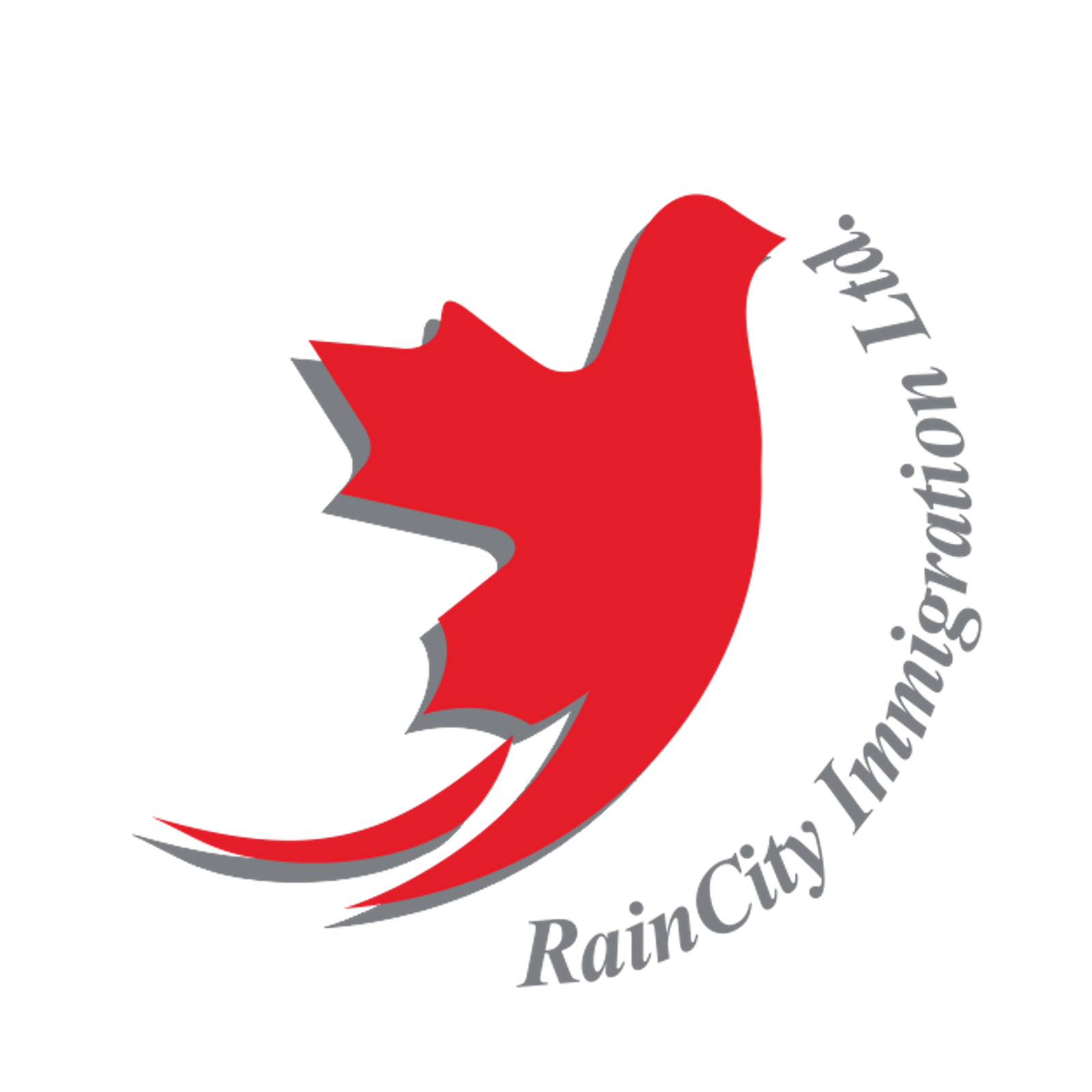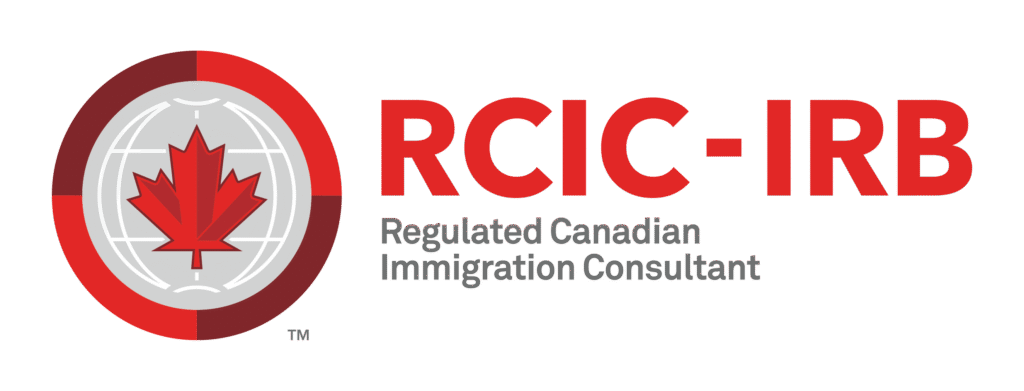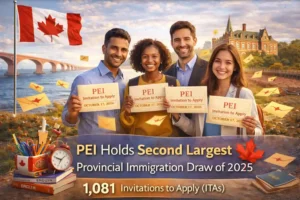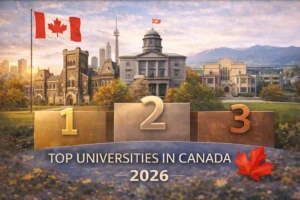Rules for entering Canada after obtaining a visa
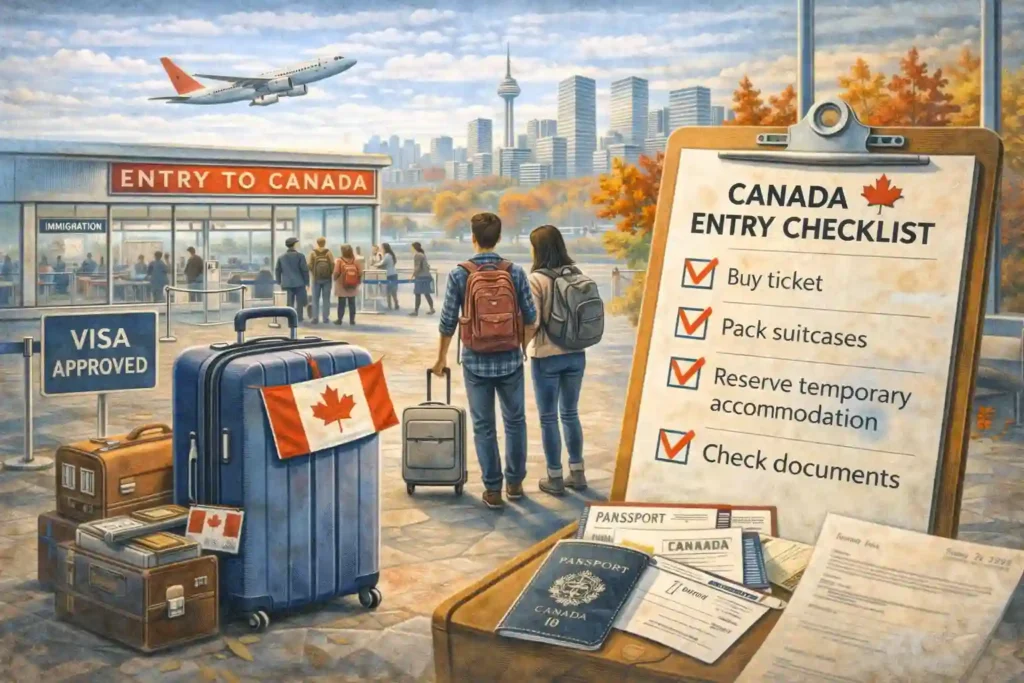
Canada Entry Checklist After Getting Your Visa
1- Buy your ticket
2- Pack your suitcases.
3- Reserve temporary accommodation.
4- Check your required documents.
Now you have your Canadian visa. Congratulations! However, your worries aren’t over, but they’ve transformed. Now you’re concerned about the immigration process itself and the tasks that follow. We’ve been through this process too, and we totally get you.
Things to Do Before Entering Canada
1. Pick up your passport for visa stamping
After receiving your Canadian visa approval letter, you need to send your passport to the Canadian embassy or one of the VACs (Visa Application Centres). You can find all the steps and details for this on the Canada visa pickup page.
2. Buy your ticket
When buying your ticket, make sure to allow enough time for immigration processing during layovers in Canada. Let’s say you’re heading to Vancouver. Your flight might land in Montreal first and then you’ll take a flight from Montreal to Vancouver. Your immigration documents will be processed in Montreal, so allow a minimum of 3 hours between flights within Canada.
3. Pack your bags; it’s time to travel to Canada
You’re going through some exciting moments. You’re probably saying goodbye to a lot of things and preparing for a fresh start.
You might be thinking about that childhood toy or that favorite dish you love, or whether to bring your books with you to Canada! Well, we’ll leave the answer to that question up to you.
Are you bringing medication?
Keep your medications in your carry-on along with a doctor’s prescription. If you’re under treatment, ask your doctor for a letter explaining your medical history so you can present it to your Canadian doctor.
Make sure that herbal medications are not on Canada’s prohibited items list. Check the items you plan to bring on the CBSA website.
Are you bringing cash?
How much currency can I bring into Canada? You can bring as much cash as you like. The only important thing is that if you have more than ten thousand Canadian dollars with you, you must state the exact amount on the declaration card (or at the kiosk). Just be careful because your departure airport might have different rules. For instance, in some countries, taking out more than a certain amount of cash isn’t allowed.
Sara’s experience bringing cash to Canada:
I arrived at Vancouver Airport and on the card they gave me on the plane, I didn’t mention that I had more than ten thousand dollars. Well, I really thought I had less than ten thousand dollars. When I got to the second kiosk, they sent me to the officer’s counter for further inspection. I got stressed out. The officer was very stiff and formal. No smile whatsoever. He asked how much money I had. I said less than ten thousand dollars. He asked exactly how much. I responded that I didn’t know exactly. He said to put all the money I had on the table. I placed my Canadian dollars, which was 9,850 dollars, on the table. He asked if I had any other money. I said no. He asked if I had money from other countries. Suddenly, I remembered that I had a little bit of euros and some tomans. I put those on the table, and I couldn’t believe that even the coins were entered online one by one, all converted to Canadian dollars, adding up to ten thousand two hundred dollars. I was really shocked. In short, I was fined 250 dollars, and I paid it at the nearby counter, and it turned out to be a good experience. Since that day, I’ve shared this experience with everyone.
Are you bringing cigarettes or tobacco?
Can’t survive without your cigarettes? You’re allowed to bring up to 200 cigarettes into Canada. If you’re missing your hookah, don’t worry. You can bring up to 200 grams of tobacco into Canada.
Are you bringing any food items?
You are allowed to bring the following food items into Canada:
Bread, pastries, and chocolate
Dried, frozen, or canned fruits and vegetables up to 20 kilograms
Spices, tea, and coffee
Powdered milk
Nuts, dried fruits, fruit rolls, and snacks
What items are prohibited from entering Canada?
We do not recommend bringing these food items:
Dairy products
Meat, fish, and poultry
Sausages and cold cuts
Seeds meant for planting
If you bring in prohibited food items, you will be fined:
Minor infraction: 500 dollars
Serious infraction: 800 dollars
Very serious infraction: 1,300 dollars
Are you bringing a pet?
Bringing pets into Canada isn’t restricted, but it does require following legal steps. There’s no need to implant a microchip in animals. It’s enough to have a valid rabies vaccination certificate written in English or French, approved by a veterinarian.
Check the weight of your suitcases.
If you have more than the allowed baggage, check the extra payment rules on the airline’s website and be ready to pay at the airport.
4. Reserve temporary accommodation
Living in a new country is an exciting yet different experience. When booking a home or place to stay, various factors must be considered. So, it’s essential to allocate enough time for research on this matter.
Important: Don’t sign a long-term lease before arriving in Canada. Seeing the home and the landlord in person can help avoid potential issues down the line.
Read more: Renting a house in Canada
Student dormitories
Some universities in Canada offer dormitories or student residences for international students, which you need to apply for a few months in advance. Details are available on the universities’ websites.
5. Check your entry documents for Canada
Valid passport (must be valid for at least six months)
Valid visa in your passport
POE letter (this is provided in your account after your study permit is approved)
Valid university acceptance letter
CAQ letter (for Quebec province)
Sufficient funds to cover your expenses (a statement showing your account balance in Canadian dollars or having acceptable cash on hand)
Valid study permit or work permit (if you had one of these before and left Canada)
Exact address of your accommodation in Canada if already reserved
Phone number and address of a contact in Canada (RainCity agents can provide the address and phone number of the RainCity office in Canada if asked by an officer and you don’t have any relatives or friends there)
Your checklist upon arriving in Canada at the airport
1. First Inspection Kiosk
Initial inspection kiosks are found in busy airports across Canada. Check out the design of these kiosks in the picture below. The name of the airport is also written above each kiosk. If you’ve previously installed the CanBorder mobile app and answered the questions, this is where you scan your barcode. If you didn’t install the app, that’s okay too.
Scan your passport
Take your photo on the device
Register your fingerprint (for permanent residency applicants)
Answer the questions. If you have over ten thousand Canadian dollars, a pet, or food products, declare them.
Take the printed receipt and head towards the border officer, letting them know you need to get a study or work permit.
2. Pick up your luggage
3. If you’re asked to go to customs inspection, do so.
4. Head to the immigration room. After receiving your permit, check the information on it.
What questions will the Canada border officer ask? What should we answer?
When the officer asks you a question, be honest and answer confidently. Officers might not smile and can come off as very serious because of their training. Don’t worry and just state the facts.
Checklist after arriving in Canada
Get your SIN number.
Think about opening a bank account in Canada.
Apply for Canadian health insurance.
Familiarize yourself with how to buy a SIM card in Canada.
Register or enroll in the educational institution you’ve been accepted to.
Learn how to use public transportation in Canada.
Public transport in Vancouver.
Public transport in Toronto.
Study the rules for extending a study permit in Canada.
Learn the driving rules in Canada and get a Canadian driver’s license.
Familiarize yourself with renting a house in Canada.
Buy household items.
If you experience culture shock after arriving, don’t worry; it’s natural. Also, if you find yourself in a crisis, call 911 immediately.
If you’re going through a tough time emotionally and need someone to talk to, you can contact the free lines of the S.U.C.C.E.S.S government center and speak with an agent who speaks your language. These individuals aren’t psychologists; they mainly try to listen to your problems and, if necessary, refer you to relevant organizations.
Phone: +1 888 721 596
Persian Extension: 4
What are your duties after arriving in Canada and settling down?
Check the expiration dates of your immigration documents and plan to renew them three months before any of them expire.
Check the expiration date of your health insurance card and renew it one month before it expires.
Choose your classes on time.
Report your tax statements once every year. (The deadline for reporting each calendar year is by the end of April the following year.)
Check the requirements for obtaining permanent residency in Canada.
Frequently asked questions
My friend has asked me to take a suitcase to Canada; should I agree?
When you bring a personal item into Canada, it’s pretty much the same as if that item belongs to you. The officer might ask you about the contents of your bag or suitcase. You will be directly responsible for anything illegal.
I plan to travel to Iran while studying in Canada. What documents do I need to have when returning to Canada?
Make sure to check the expiration date of your passport, study permit, or work permit. If these documents have expired upon your return, you won’t be allowed to enter Canada. Also, if you’re a student, keep your academic record handy to show that you’ve followed student regulations.
How does the visitor visa work for a student's family members?
Having a study permit or work permit doesn’t guarantee a visa for other family members. However, if you’re studying or working in Canada, you can send an invitation to your family members to apply for a Canadian tourist visa. Most colleges and universities have pre-prepared letters that can be issued upon your request. You can present this letter as a document showing your residency status to the immigration department.
What's the difference between a visa and a study permit?
A visa is your entry permit to Canada, but a study permit or any other type of permit is your residence authorization in Canada.
Can I travel to other countries with a student visa?
Absolutely yes. Just make sure that if you’re traveling to countries that require a visa, you apply for the visa in advance.
For example, if you plan to travel to Europe, you need to apply for a visa through the consulate office of that country in Canada.
For traveling to Mexico or Cuba, there’s no requirement to apply for a tourist visa, and having a Canadian visa automatically allows you to enter these countries. However, this is not for working or obtaining permanent residency, just for tourist trips.
